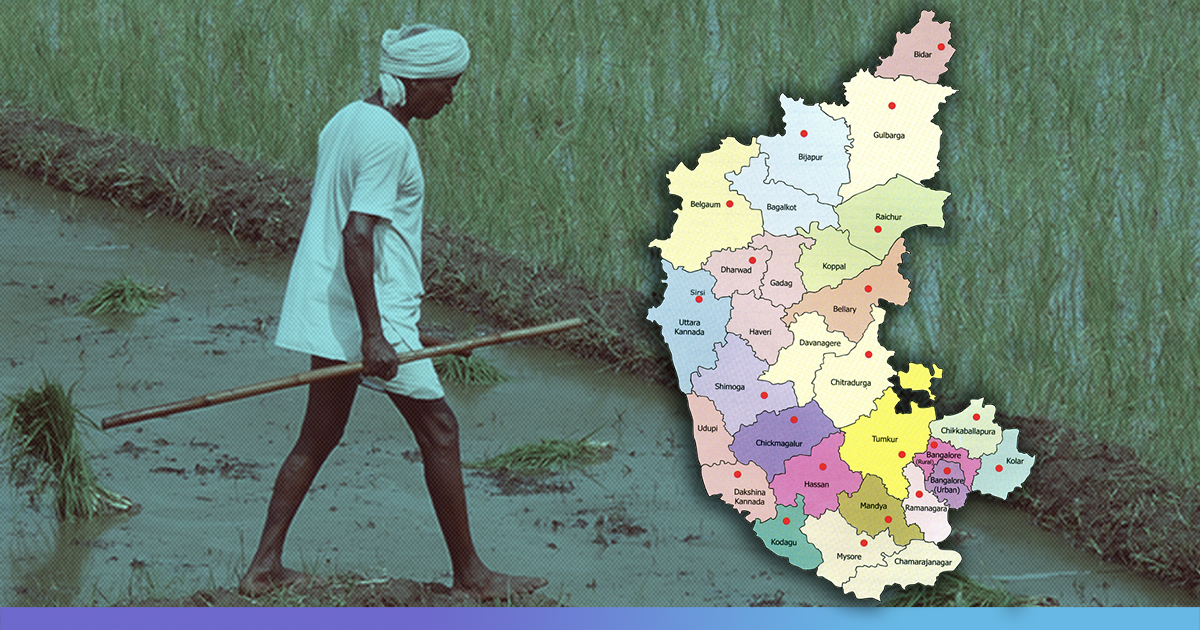
Karnataka Stares At 25-30% Slump In Food Production Due To Incessant Rain
11 Nov 2019 12:48 PM GMT
Farmers across the country have suffered losses as to incessant rains and flash floods destroyed their yield, leaving farmers disgruntled against the government, as the latter is yet to address the issue.
Heavy rains across Karnataka have destroyed the majority of the Kharif crops and the state is staring at the slump in the food production this year. The state which depends 70% on Kharif crops is now expecting a good rabi yield to offset the massive loss in Kharif season.
The timing of Kharif season differs in every state but is generally seen from June to September. The Rabi season usually starts in November and lasts up to March or April. Rabi crops are mainly cultivated using irrigation since monsoons are already over by November.
The Government officials are apprehensive about rabi crops as well, thanks to the untimely rain in October. If the rabi crops fail to compensate the Kharif losses, then there will be a slump in production of food grains and pulses by 25-30 per cent approximately, reported, The Times Of India.
To gauge the rabi season’s product, the officials have set a target of 110 lakh tonnes for the year. However, considering the ill-timed rains, officials fear that at the end of the season there will only be a total yield of 80 – 85 lakh tonnes. Of the 72 lakh hectares on which the Kharif crops were sowed, crop son 7.5 lakh hectares have been destroyed due to rains.
Some farmers were also unable to access their fields due to waterlogging even with equipment. The report also mentioned that the farmers from the Belagavi district are waiting for the rain to stop to harvest their soybean crops.
For the rabi season, farmers have only sown crops on 12 lakh hectares against 33 lakh hectares. An official on anonymity told the newspaper that torrential rain has snagged the farmers from sowing. He said normally 70 per cent of sowing is completed by the first week of November. Interestingly, last year, draught brought havoc to the production. Climate change is not something to be laughed off, as it is leading to abominable changes.
 All section
All section













